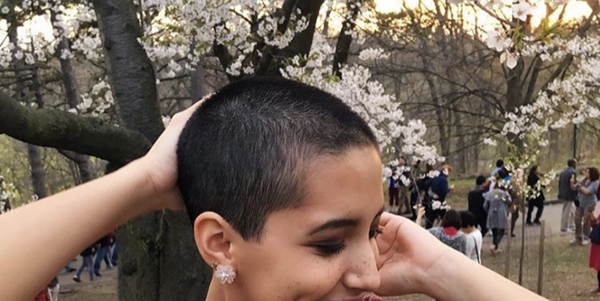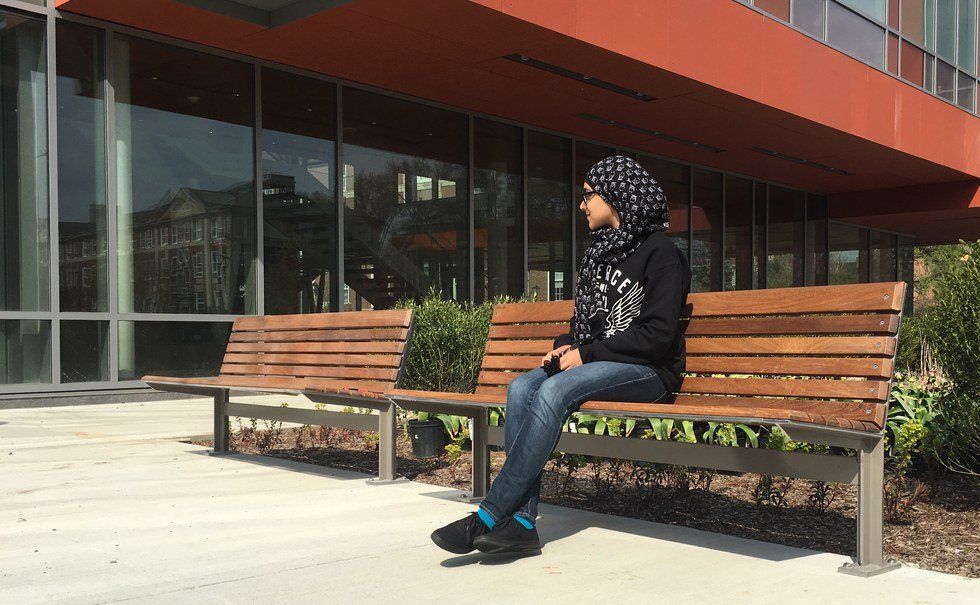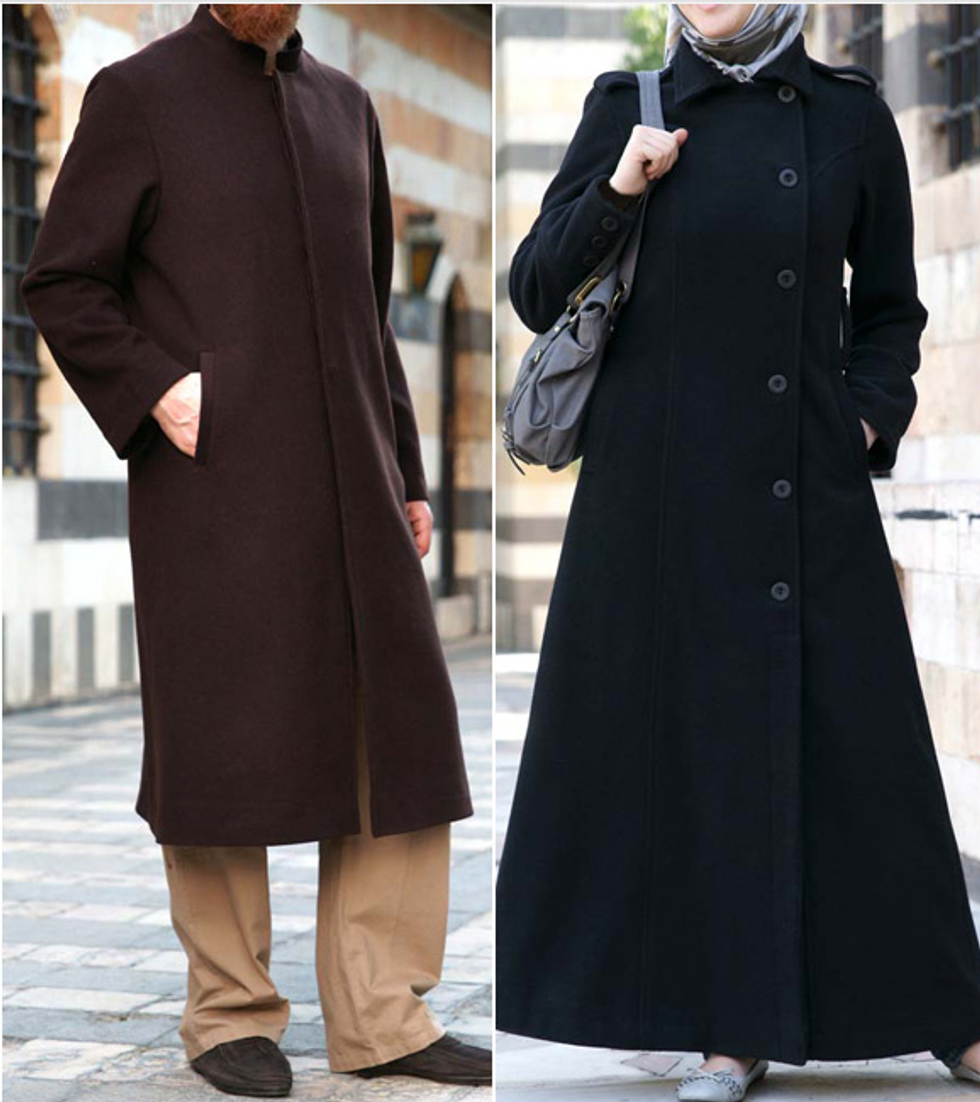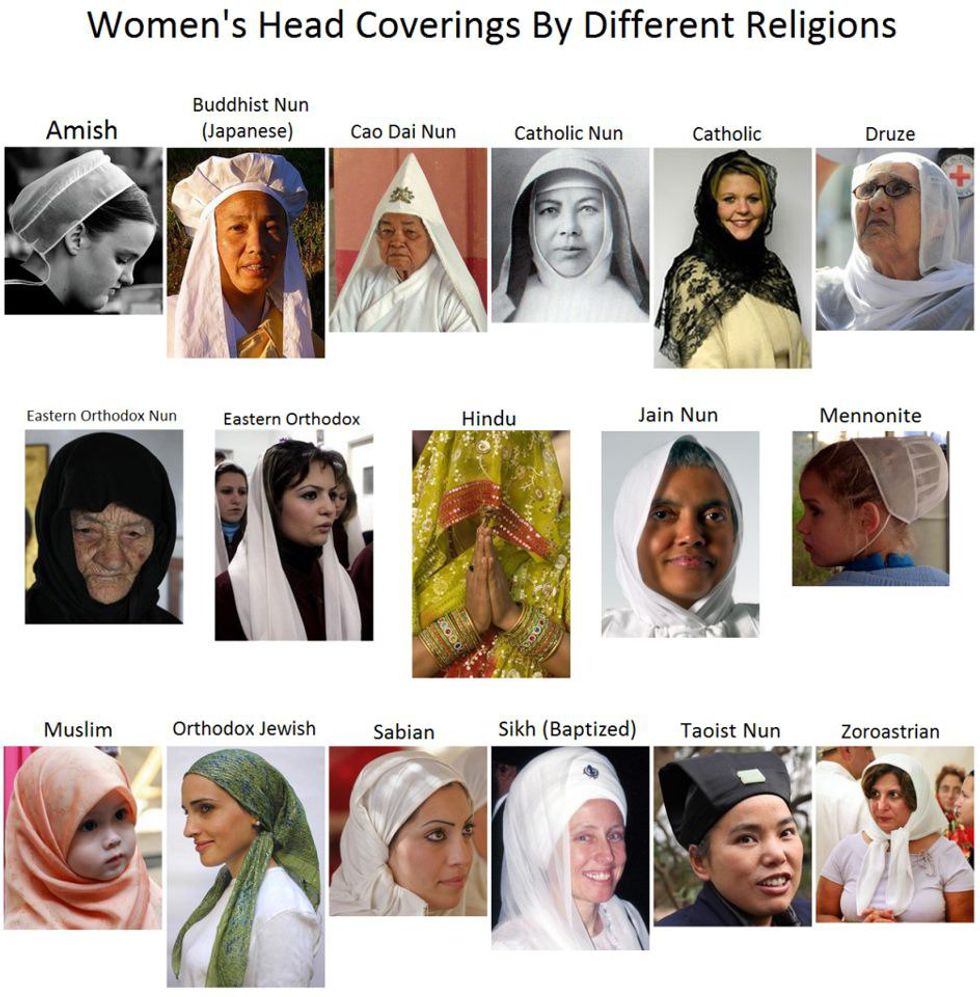The hijab (حجاب), mostly referred to as the Islamic headscarf, is a veil that some Muslim females wear on their head. Despite popular belief, the hijab is not just the covering of the hair. Hijab is a concept that also refers to the non-revealing wardrobe choice that is seen on most women who wear the hijab. It is also not just worn for religious reasons. Many women wear it as a form of expressing their cultural identity.
However, many people associate the hijab with oppression due to the fact that women in certain regions are forced to wear it. I am here to assure you that it is in fact a choice that Muslim women make themselves given the proper circumstances. In other words, women should not be forced to cover their hair or bodies. Certain regions that mandate the covering up of females seem to be sending out the wrong message to people—that not wearing the hijab is punishable.
Well, it’s not.
This misunderstanding stems from misinterpretations and different theological translations of the Quran. The main purpose of the hijab is to cover up as a symbol of devotion, identity and modesty. If someone doesn’t identify with the hijab (or anything in particular, really), they shouldn’t have to wear it. It’s as simple as that.
Even males have their own version of the hijab, very similar to the yarmulke which is the head covering that Jewish males wear. The thing is, most of them only wear it during the five daily Islamic prayers.
You never see anyone wearing it outside in Western countries because, like I said, it’s a choice. It’s also a double standard that relates to selective attention. Males can cover up if they choose, but if women do it, they’re oppressed?
Take a look at what a typical male and female would wear in an Islamic country, where modest dressing is the norm, and tell me if you see a difference, please.
Little do people know that if men (and women) aren’t dressed in proper prayer attire (i.e. if they’re wearing shorts, are showing their hair, etc.) it technically means that the prayers performed aren’t valid. The same rules that apply to females when it comes to modesty are applied to males as well. The entire idea of being oppressed is a double standard.
In my opinion, the entire idea of wearing the hijab to prevent males from flirting with women is nonsense, at least where I live. It’s a complete societal thing. It might apply to some Muslim countries, where males are raised to perceive the headscarf as exactly that, but what about Western countries? Covering my hair has not stopped people from sexualizing me. My mother covered everything except for her eyes when she was a college student in Pakistan, a developing country that is about 96% Muslim, yet she still got catcalled.
I have even had people tell me that my hijab might draw some guys to me more because of the entire, “You want what you can’t have,” state of mind. I’m not saying I agree with this, but if that was really the true purpose of the hijab (to keep men away), then there would be no need to wear it in societies that sexualize pretty much everything.
Then again, I am in no place to tell women why they wear the hijab, so if that’s the reason they choose to cover up, if it’s working, and if they’re happy with it, I fully support their decisions. It’s just that different concepts might not apply everywhere because of societal values.
I started wearing the hijab in the seventh grade right before I turned 12 years old. I still remember walking into homeroom on the first day of class. I know I got blank, confused stares, but it wasn’t anything that I didn’t expect. It wasn’t that bad and I thought I blended right in.
Boy, was I wrong. Fast forward to a few months later, when people finally got over my decision to be one of the only hijabis in my middle school, when they thought it was okay to call me “turban” and try to rip my hijab off for fun. I still remember walking into my evening tutoring classes. The phrase I heard the most, and in a condescending tone, was, “Noor, you’re a Muslim?”
Well, yes I am a Muslim, and a proud one too. Wearing the hijab is my own personal way of being devoted to my God. I have a continuous reminder of what I live for. It gives me solace.
It’s almost like a constant wake up call to remind me who I am and what I stand for. It’s also an identity marker or uniform: I want people to see that I am a Muslim. I want to set an example for other people who think that the hijab is linked to terrorism, oppression, inferiority, and inequality. I can promise you that I’m not oppressed.
I’ve been wearing the hijab for almost seven years now. If I felt oppressed at any point, I would’ve spoken out about it. Nearly no one in my family wears the hijab except for a few aunts of mine, who also choose to wear it. When I first decided to cover my hair, the first thing my mother, a non-hijabi, said to me was, “Are you sure you want to do this? It’s completely up to you.”
Although I was only 11 years old when I made the decision, I’m extremely grateful that I did. I can easily say that I would not be the same person today if it wasn’t for my hijab. For example, I wouldn’t be writing this. I wouldn’t be speaking out so much about Islamophobia, whether it’s my own experience with it or someone else’s. I definitely wouldn’t be as religious either. Like I said, my hijab is a constant reminder of my beliefs.
I think it’s essential to point out that women who wear the hijab are no better or worse than women who don’t wear the hijab. A woman can wear the hijab and not be as devoted to God as someone who doesn’t wear the hijab. Just because people are “visibly religious” doesn’t mean that they are the most religious people in the world; don’t assume anything or judge a book by its cover.
It’s also important to point out that Islam isn’t the only religion associated with a head scarf.
I love everyone and everything no matter what religious or non-religious beliefs they hold. Most of my closest friends don’t even hold the same religious beliefs as me and it’s actually a beautiful thing. Being surrounded by such diverse people has opened my eyes to help me realize just how easy it is to live in harmony with one another. A lot of people are quick to judge a Muslim woman if she wears the hijab. They automatically think that they’re superior to the girl that covers up because they’re not “hiding” parts of them like the Muslim girl is.
I have had non-Muslims tell me that they feel bad for me because I believe that my headscarf doesn't oppress me. Yes, the hijab can be linked to oppression when you look at all the women who are forced to wear it, but here's the thing:
I'm not forced to wear it.
Countless other women are not forced to wear it.
Let me ask you something: If I choose to visibly represent my beliefs with pride, am I really oppressed? If I decide myself that I want to showcase what I stand for, am I really oppressed?
I’m beyond happy with what I wear and how I choose to wear it. You should do whatever you desire as long as you feel comfortable and aren't harming yourself or others. That's my motto.























